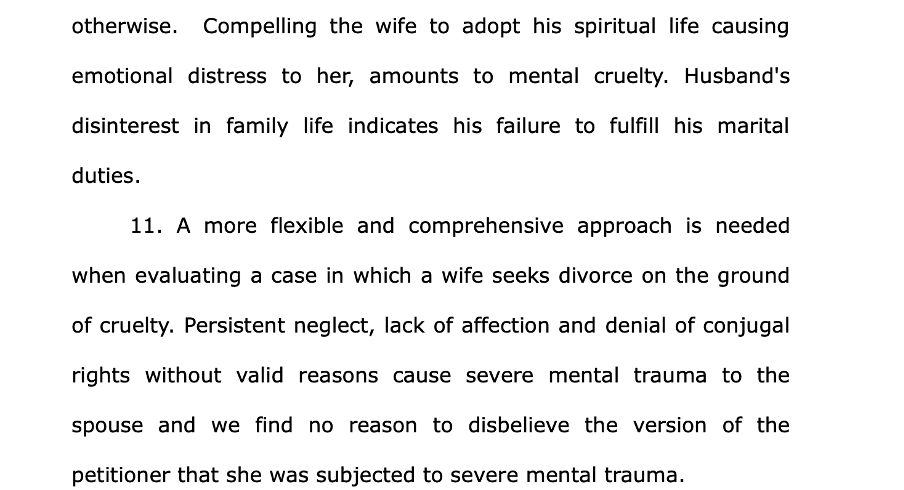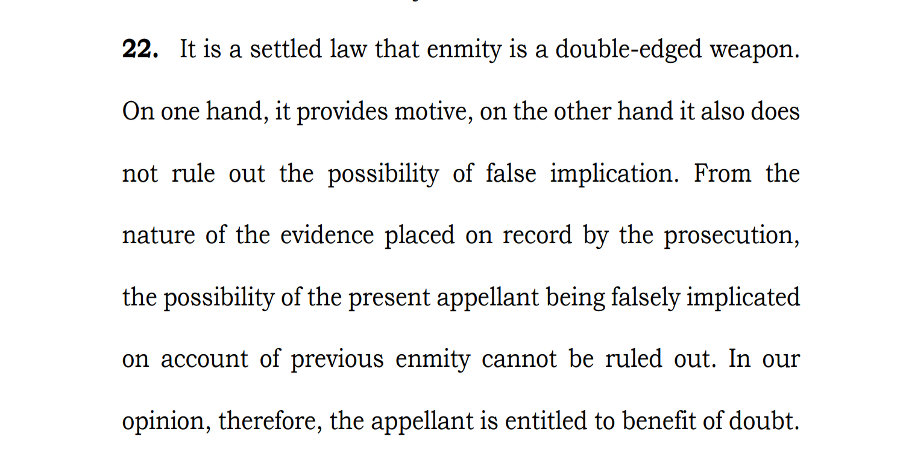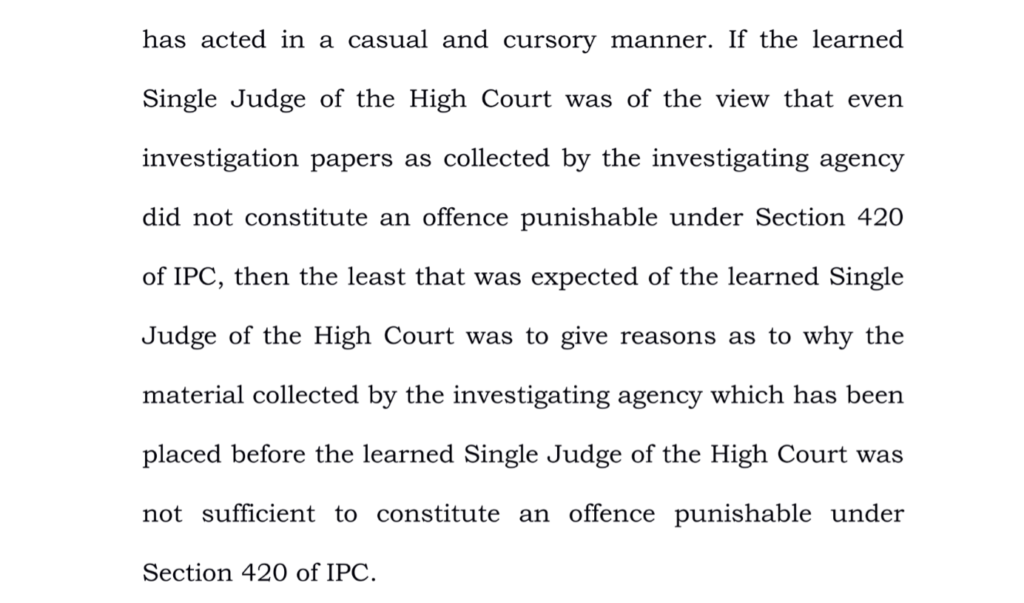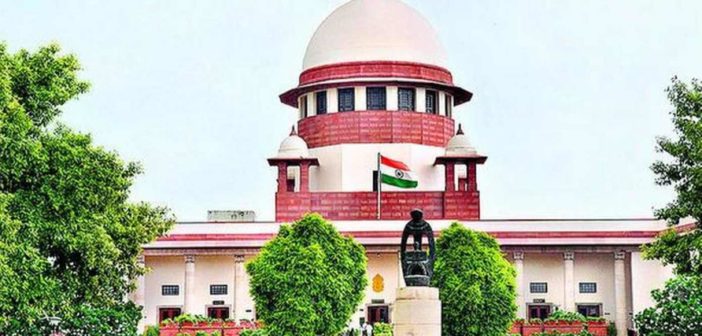In this edition of the Court Judgements review, we look at the Supreme Court’s order that police are constitutionally bound to protect Citizens’ Freedom of Expression and Speech, and that instigation must have close proximity to suicide, Kerala HC’s order that persistent neglect, lack of affection and denial of conjugal rights without valid reasons cause severe mental trauma to the spouse, among others.
Kerala HC: Persistent neglect, lack of affection and denial of conjugal rights without valid reasons cause severe mental trauma to the spouse
In the case between X (Petitioner-Husband) vs. Y (Respondent-Wife), the Kerala High Court (HC) held that persistent neglect, lack of affection, and denial of conjugal rights by one spouse amounts to mental cruelty towards the other.
The facts of the case were that the couple married in 2016 under the Hindu Marriage Act. However, soon after, the wife observed that her husband was more engrossed in superstitious and religious activities than in their marital life. He showed little interest in caring for his wife, including fulfilling conjugal responsibilities or starting a family. Instead, he frequently visited temples, ashrams and went on pilgrimages, compelling his wife to adopt a similar lifestyle.
In 2019, the wife filed for divorce in the family court but later withdrew the petition after her husband apologized and promised to change. However, his behaviour remained unchanged, leading her to file for divorce again. The family court ruled in her favour, prompting the husband to challenge the decision before the HC.
Upon review, the HC noted that cross-examination confirmed the husband’s frequent visits to temples, substantiating the wife’s claim that he prioritized religious life over family responsibilities. The court emphasized that marriage does not give one partner the right to impose personal beliefs on the other. It concluded that the husband’s continued disinterest in family life constituted a failure to fulfil marital obligations, thereby upholding the family court’s decision to grant the divorce.

SC: Police are constitutionally bound to protect Citizens’ Freedom of Expression and Speech
In Imran Pratagadhi (Petitioner & Member of Parliament) vs. State of Gujarat & Anr (Respondnets), the Supreme Court (SC) observed that even after 75 years of independence, state law enforcement authorities either remain ignorant or indifferent to protecting citizens’ fundamental right to freedom of speech and expression, as guaranteed under Article 19(1)(a) of the Constitution.
The facts of the case were that the petitioner was accused of inciting communal disharmony and violence by posting a video clip of a poem on the social media platform ‘X.’ Following a complaint by Respondent No. 2, the police registered a First Information Report (FIR) against him under relevant sections of the Bharatiya Nyaya Sanhita (BNS). Seeking to quash the FIR and the ensuing criminal proceedings, the petitioner approached the HC.
The translated poem reads as under:
“Those who are blood thirsty, listen to us.
If the fight for our rights is met with injustice, we will meet that injustice with love.
If the drops flowing from a candle are like a flame (Analogy: if the tears from our face are like a flame), we will use it to light up all paths.
If the bodies of our loved ones are a threat to your throne, we swear by God that we will bury our loved ones happily
Those who are blood thirsty, listen to us.”
The petitioner argued that the poem neither incited violence nor caused communal disharmony. However, the HC declined to intervene, citing the early stage of the investigation, and dismissed the petition. Consequently, the petitioner approached the SC.
The SC ruled that the poem made no reference to any religion, community, region, or race, nor did it incite violence or threaten national integrity. As a result, the charges against the petitioner under Sections 196, 197(1), 302, 299, 57, and 3(5) of the BNS were deemed inapplicable. The Court set aside the HC’s judgment and quashed the criminal proceedings against the petitioner.
Further, it also made several critical observations and conclusions, including the following:
- Under BNS, a police officer is empowered to make a preliminary inquiry to ascertain whether a prima facie case is made out for proceeding in the matter even if the information received discloses the commission of any cognizable offence.
- After holding a preliminary inquiry, if the officer comes to a conclusion that a prima facie case exists to proceed, he should immediately register an FIR and proceed to investigate. But, if he is of the view that a prima facie case is not made out to proceed, he should immediately inform the first informant/complainant so that he can avail a remedy under sub-Section (4) of Section 173.
- The police officers must abide by the Constitution and respect its ideals. They are bound to honour and uphold freedom of speech and expression conferred on all citizens.
- When an offence punishable under Section 196 of BNS is alleged, the effect of the spoken or written words will have to be considered based on standards of reasonable, strong-minded, firm and courageous individuals and not based on the standards of people with weak and oscillating minds. The effect of the spoken or written words cannot be judged on the basis of the standards of people who always have a sense of insecurity or of those who always perceive criticism as a threat to their power or position.
- There is no absolute rule that when the investigation is at a nascent stage, the High Court cannot exercise its jurisdiction to quash an offence by exercising its jurisdiction under Article 226 of the Constitution of India or under Section 482 of the CrPC, equivalent to Section 528 of the BNSS. When the High Court, in the given case, finds that no offence was made out on the face of it, to prevent abuse of the process of law, it can always interfere even though the investigation is at the nascent stage.
- Free expression of thoughts and views by individuals or groups of individuals is an integral part of a healthy, civilised society. Without freedom of expression of thoughts and views, it is impossible to lead a dignified life guaranteed by Article 21 of the Constitution. In a healthy democracy, the views, opinions or thoughts expressed by an individual or group of individuals must be countered by expressing another point of view.
- 75 years into our republic, we cannot be seen to be so shaky on our fundamentals that mere recital of a poem or, for that matter, any form of art or entertainment, such as stand-up comedy, can be alleged to lead to animosity or hatred amongst different communities.
SC: The possibility of falsely implicating people on account of previous enmity cannot be ruled out
In Aslam Alias Imran (Petitioner) vs. The State of Madhya Pradesh (Respondent), the SC held that the possibility of falsely implicating people as accused in criminal cases cannot be ruled out.
The facts of the case were that in the year 1994, the petitioner was accused of being involved in a quarrel with Zahid Khan, and caused him multiple injuries on his hands, thighs, and a deep wound on his neck with a butcher’s knife. The Prosecution Witness – 1 (PW-1) had taken him to the hospital. However, Zahid Khan had died on the same day. The trial court convicted the Appellant to life imprisonment in 1995. The HC also upheld the verdict of the trial court, leading the petitioner to challenge the same in the SC.
The SC noted that in his deposition, though the PW–1 stated he had witnessed the incident, he did not report about the same either at the Police Station, which was a short distance away, or at Victoria Hospital. This evidence contradicts with evidence of PW-6, who had stated that PW-1 had come only after he called him through another person called Mukthar. Further, the absence of blood stains on the clothes of PW-1, while he stated he carried the deceased to the hospital, also cast serious doubts on his testimony. Similarly, the depositions and evidence of PW-2, PW-3, and PW-4 contradict each other and do not support the case of prosecution. For example, though PW-1 stated that the deceased was taken to the hospital on a scooter of PW-3, PW-3, in his evidence, stated that PW-1, PW-2 and PW-4 picked up the deceased and took him to Dr. Khan’s dispensary first, and thereafter to Victoria Hospital.
Further, the SC also took notice that the deceased was a history-sheeter and was facing many criminal cases, including a case for attempt to murder, and there was enmity between the Appellant and the deceased. Therefore, the SC held that it is a settled law that enmity is a double-edged weapon, and the possibility of the Appellant being falsely implicated by the others on account of previous enmity with the deceased cannot be ruled out.
Accordingly, applying the benefit of doubt, the SC acquitted the Appellant of all charges.

SC: Instigation must have close proximity to suicide
In R. Sashirekha (Appellant) vs. State of Karnataka & Ors (Respondents), the SC held that to establish the offence of instigation to commit suicide, there must be close proximity between the time of commission of the offence and the incident alleged to have caused instigation to commit suicide.
The facts of the case were that Appellant is the wife of her deceased husband, who hanged himself to death on 14 April 2024. On 18 May 2024, while the Appellant was cleaning the wardrobe of the deceased, she found a death note, written by her husband in his own handwriting. It contained the allegations that Respondent Nos. 2 & 3, who are the business partners of her husband, as the reason for his suicide since they cheated him, and forged his signature, which resulted in the loss of Rs. 60 crores to him. Respondent No. 4 was also alleged to have been directly involved in the case. On 22 May 2024, the wife filed a complaint against Respondents 2 to 4, and an FIR was registered against them was registered under sections 306 (Abetment of Suicide) and 420 (Cheating) of the IPC. The Respondents 2 to 4 approached HC seeking quashing of proceedings.
The HC noted that the document alleged by the Appellant as forged by the Respondents is a five-year-old document, and has no proximity to the date of the commission of suicide by the deceased. To constitute the offence of instigation to suicide, there must be close proximity between the two. Therefore, the abetment to suicide was ruled out. As for the crime of cheating, the HC held that such a complaint should have been filed by the husband during his lifetime, not by the wife after his death. Accordingly, HC quashed all the proceedings against Appellants.
On Appeal, the SC upheld the judgment of the HC insofar as the abetment of suicide is concerned. But, on charge of cheating, the SC remarked that HC dealt with it in a casual and cursory manner without giving any reasons and material based on which such a conclusion was arrived at. Accordingly, while partially upholding the HC judgment, the SC remitted the matter back to the trial court to proceed with it in accordance with the law.




